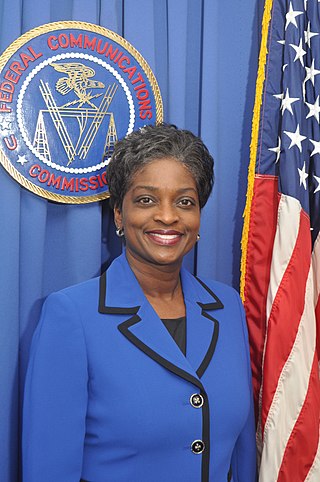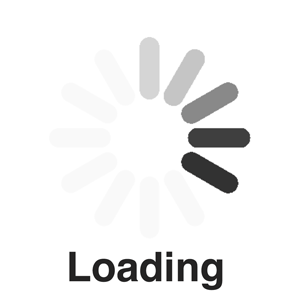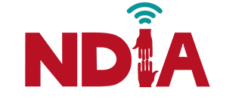
The Federal Communications Commission (FCC) is an independent agency of the United States government that regulates communications by radio, television, wire, satellite, and cable across the United States. The FCC maintains jurisdiction over the areas of broadband access, fair competition, radio frequency use, media responsibility, public safety, and homeland security.

An Internet service provider (ISP) is an organization that provides a myriad of services related to accessing, using, managing, or participating in the Internet. ISPs can be organized in various forms, such as commercial, community-owned, non-profit, or otherwise privately owned.
Center for Democracy & Technology (CDT) is a Washington, D.C.-based 501(c)(3) nonprofit organisation that advocates for digital rights and freedom of expression. CDT seeks to promote legislation that enables individuals to use the internet for purposes of well-intent, while at the same time reducing its potential for harm. It advocates for transparency, accountability, and limiting the collection of personal information.

Network neutrality, often referred to as net neutrality, is the principle that Internet service providers (ISPs) must treat all Internet communications equally, offering users and online content providers consistent rates irrespective of content, website, platform, application, type of equipment, source address, destination address, or method of communication. Net neutrality was advocated for in the 1990s by the presidential administration of Bill Clinton in the United States. Clinton's signing of the Telecommunications Act of 1996, an amendment to the Communications Act of 1934, set a worldwide example for net neutrality laws and the regulation of ISPs.

Gigi Beth Sohn is an American lawyer who is the co-founder of Public Knowledge. She previously worked for the Ford Foundation. In 2013, Tom Wheeler hired her into a senior staff position at the U.S. Federal Communications Commission (FCC). She left there shortly after Donald Trump's election in 2016. In July 2017, she held fellowship positions with Georgetown Law's Institute for Technology Law & Policy, Open Society Foundations, and Mozilla.
The Universal Service Fund (USF) is a system of telecommunications subsidies and fees managed by the United States Federal Communications Commission (FCC) intended to promote universal access to telecommunications services in the United States. The FCC established the fund in 1997 in compliance with the Telecommunications Act of 1996. The FCC is a government agency that implements and enforces telecommunications regulations across the U.S. and its territories. The Universal Service Fund's budget ranges from $5–8 billion per year depending on the needs of the telecommunications providers. These needs include the cost to maintain the hardware needed for their services and the services themselves. The total 2019 proposed budget for the USF was $8.4 billion. The budget is revised quarterly allowing the service providers to accurately estimate their costs. As of 2019, roughly 60% of the USF budget was put towards “high-cost” areas, 19% went to libraries and schools, 13% was for low income areas, and 8% was for rural health care. In 2019 the rate for the USF budget was 24.4% of a telecom company's interstate and international end-user revenues.
In the United States, net neutrality—the principle that Internet service providers (ISPs) should make no distinctions between different kinds of content on the Internet, and to not discriminate based on such distinctions—has been an issue of contention between end-users and ISPs since the 1990s. With net neutrality, ISPs may not intentionally block, slow down, or charge different rates for specific online content. Without net neutrality, ISPs may prioritize certain types of traffic, meter others, or potentially block specific types of content, while charging consumers different rates for that content.
Save the Internet is a coalition of individuals, businesses, and non-profit organizations working for the preservation of Net neutrality. The site encourages taking action against discrimination of bandwidth distribution on the Internet.
Public Knowledge is an American non-profit public interest group based in Washington, D.C. Founded in 2001 by David Bollier, Gigi Sohn, and Laurie Racine, Public Knowledge is primarily involved in the fields of intellectual property law, competition and choice in the digital marketplace, and an open standards/end-to-end internet.

Julius Genachowski is an American lawyer and businessman. He became the Federal Communications Commission Chairman on June 29, 2009. On March 22, 2013, he announced he would be leaving the FCC in the coming weeks. On January 6, 2014, it was announced that Genachowski had joined The Carlyle Group. He transitioned from Partner and Managing Director to Senior Advisor in early 2024.

Mignon Letitia Clyburn is an American former government official who served as a member of the Federal Communications Commission (FCC) from 2009 to 2018.
The Federal Communications Commission Open Internet Order of 2010 is a set of regulations that move towards the establishment of the internet neutrality concept. Some opponents of net neutrality believe such internet regulation would inhibit innovation by preventing providers from capitalizing on their broadband investments and reinvesting that money into higher quality services for consumers. Supporters of net neutrality argue that the presence of content restrictions by network providers represents a threat to individual expression and the rights of the First Amendment. Open Internet strikes a balance between these two camps by creating a compromised set of regulations that treats all internet traffic in "roughly the same way". In Verizon v. FCC, the Court of Appeals for the D.C. Circuit vacated portions of the order that the court determined could only be applied to common carriers.
Internet bottlenecks are places in telecommunication networks in which internet service providers (ISPs), or naturally occurring high use of the network, slow or alter the network speed of the users and/or content producers using that network. A bottleneck is a more general term for a system that has been reduced or slowed due to limited resources or components. The bottleneck occurs in a network when there are too many users attempting to access a specific resource. Internet bottlenecks provide artificial and natural network choke points to inhibit certain sets of users from overloading the entire network by consuming too much bandwidth. Theoretically, this will lead users and content producers through alternative paths to accomplish their goals while limiting the network load at any one time. Alternatively, internet bottlenecks have been seen as a way for ISPs to take advantage of their dominant market-power increasing rates for content providers to push past bottlenecks. The United States Federal Communications Commission (FCC) has created regulations stipulating that artificial bottlenecks are in direct opposition to a free and open Internet.
Net bias is the counter-principle to net neutrality, which indicates differentiation or discrimination of price and the quality of content or applications on the Internet by ISPs. Similar terms include data discrimination, digital redlining, and network management.

Ajit Varadaraj Pai is an American lawyer who served as chairman of the Federal Communications Commission (FCC) from 2017 to 2021. He has been a partner at the private-equity firm Searchlight Capital since April 2021.

Internet Slowdown Day, part of the "Battle for the Net" initiative, was a series of protests against the repeal of net neutrality laws coordinated by websites and advocacy groups in the United States occurring on September 10, 2014. The official site explains: "On September 10th, sites across the web will display an alert with a symbolic 'loading' symbol and promote a call to action for users to push comments to the FCC, Congress, and the White House."
"Net Neutrality" is the first segment devoted to net neutrality in the United States of the HBO news satire television series Last Week Tonight with John Oliver. It aired for 13 minutes on June 1, 2014, as part of the fifth episode of Last Week Tonight's first season.
Arguments associated with net neutrality regulations in the US came into prominence in mid-2002, offered by the "High Tech Broadband Coalition", a group comprising the Business Software Alliance; the Consumer Electronics Association; the Information Technology Industry Council; the National Association of Manufacturers; the Semiconductor Industry Association; and the Telecommunications Industry Association, some of which were developers for Amazon.com, Google, and Microsoft. The full concept of "net neutrality" was developed by regulators and legal academics, most prominently law professors Tim Wu, Lawrence Lessig and Federal Communications Commission Chairman Michael Powell often while speaking at the University of Colorado School of Law Annual Digital Broadband Migration conference or writing in the Journal of Telecommunications and High Technology Law.

National Digital Inclusion Alliance (NDIA) is a US nonprofit organization that brings together over 600 non-profit organizations, policy-makers, and academics to advocate for national access to broadband and to put an end to the multiple digital divides. NDIA has provided community-vetted definitions of digital equity and digital inclusion, puts on an annual conference called Net Inclusion, and sponsors an annual Digital Inclusion Week.
"Net Neutrality II" is the second segment of the HBO news satire television series Last Week Tonight with John Oliver devoted to net neutrality in the United States. It aired on May 7, 2017 for 19 minutes, as part of the eleventh episode of the fourth season, and the 100th episode overall.









